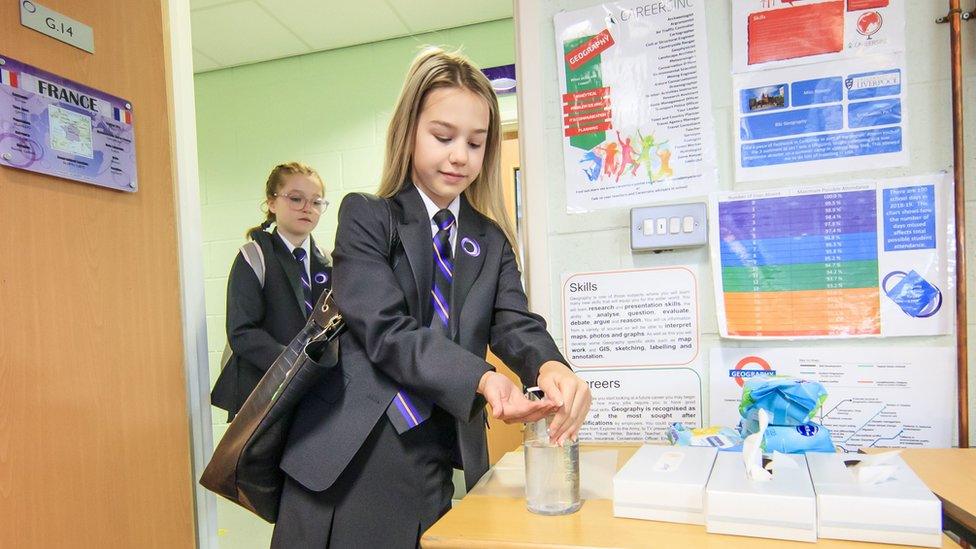Covid: Head warns of effect on early years pupils 'lasting years'
- Published
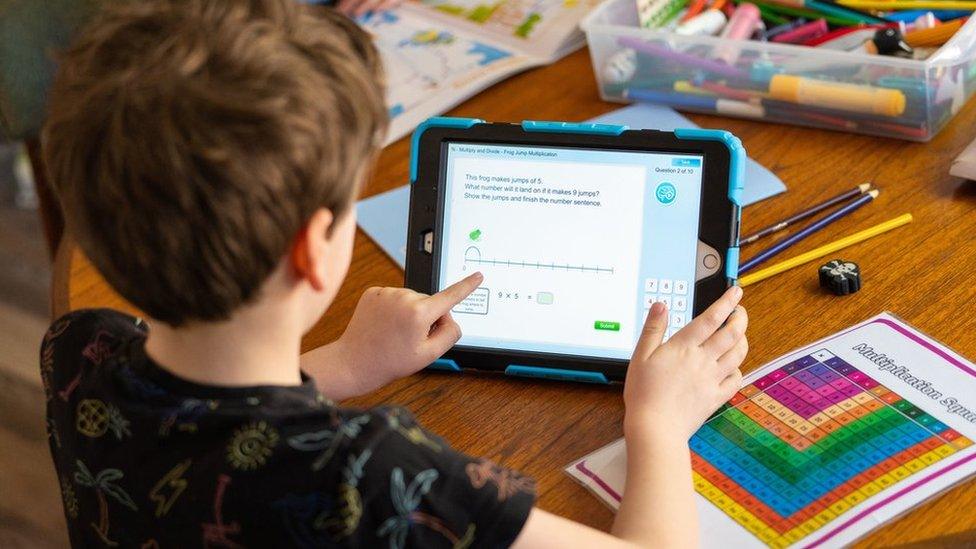
The priority when full schooling resumes will be to "identify gaps" with each child, head teacher Matt Hood said
Covid-caused disruption for children learning the basics of reading and counting could pose problems for years to come, a head teacher has warned.
Matt Hood, principal of the online Oak National Academy, said early years teaching was "sophisticated" and it was "unreasonable" to expect parents to master it.
He said we may see the impact when pupils sit GCSEs 10 years from now.
The government said more than £1bn was being spent to help pupils catch up.
Mr Hood, from Penrith in Cumbria, said there had been a six-month disruption in schooling, adding: "The year groups I'm most worried about are reception and Year 1.
"I cannot stress enough how critical those early years are, focussed on learning sounds, how to read and count, those things are so fundamental.
"They are some of the most sophisticated things to teach, it's not something you can reasonably expect any parent at home to become an expert in teaching."
Mr Hood, an economics teacher who is also chair of governors at Bay Leadership Academy in Morecambe, said teachers were experts at identifying variations in an individual pupil's knowledge and abilities and plugging gaps.
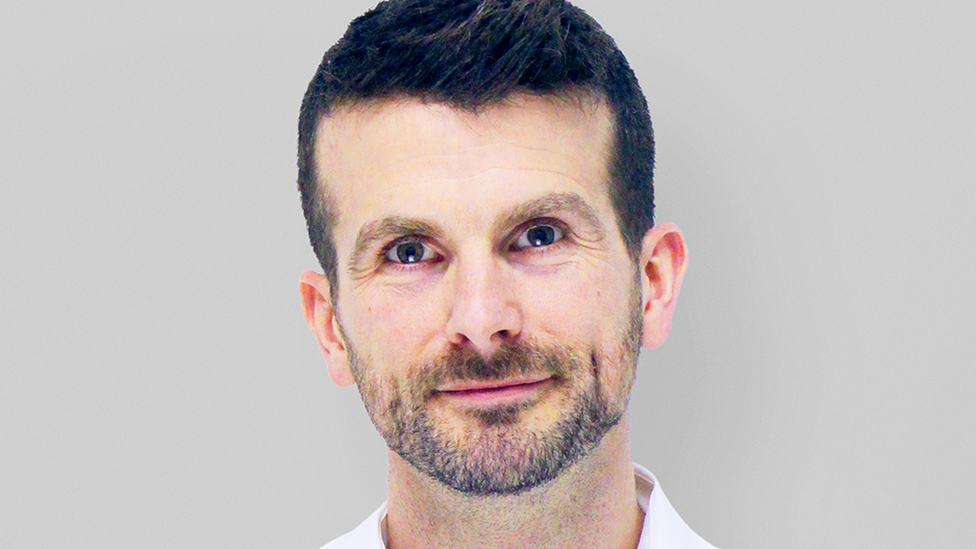
Matt Hood is the principal of the Oak National Academy, an online resource of videos set up in Easter 2020
He said: "What we are going to see is that variation being significantly more complicated because what the teachers do not know is the extent to which every pupil has completed all their work in the way they would have in the school building."
The priority when full schooling resumes would be to "identify gaps" with each child, Mr Hood said.
"The big risk is we create a never-ending cycle of pupils needing to catch up.
"One of the worst things you can do in most cases is take them out of their lessons to catch up. We want to them to spend their time with the most expert person they can, and that is their teacher."
Mr Hood has also worked with data companies to allow pupils free access to educational websites, as well as promoted drives to get internet-enabled devices to all children so "disadvantaged" pupils do not miss out further.
A Department for Education spokeswoman said: "The government will work with parents, teachers and schools to develop a long-term plan to make sure pupils have the chance to make up their lost education."
The BBC's Make A Difference: Give A Laptop campaign has seen more than 17,000 devices donated since 7 January with a further 30,000 devices pledged by businesses across England.

Follow BBC North East & Cumbria on Twitter, external, Facebook, external and Instagram, external. Send your story ideas to northeastandcumbria@bbc.co.uk, external.
- Published19 January 2021
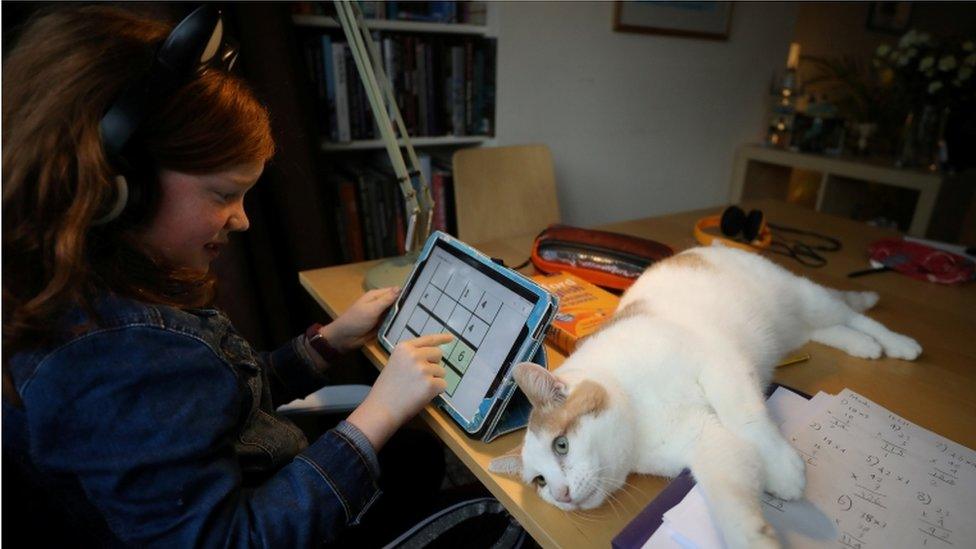
- Published17 January 2021
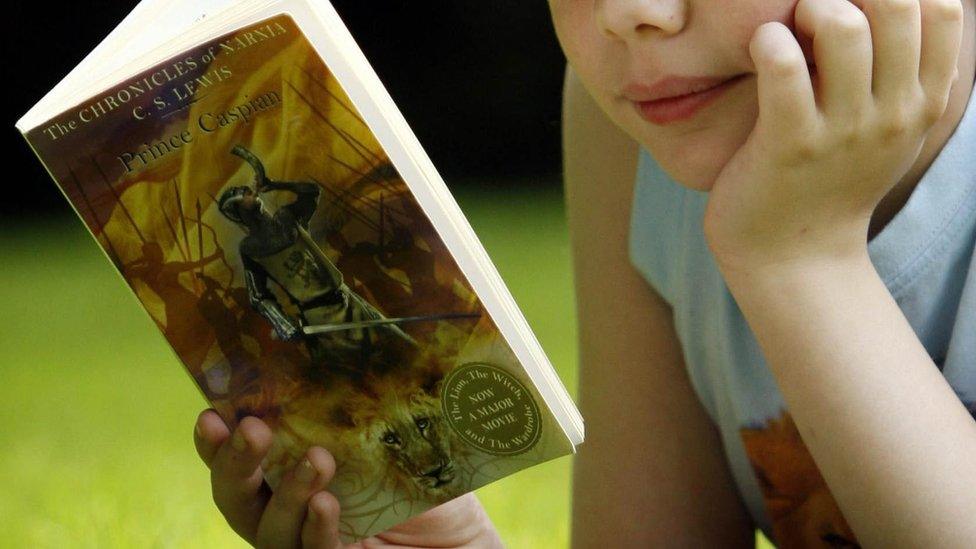
- Published1 December 2020
